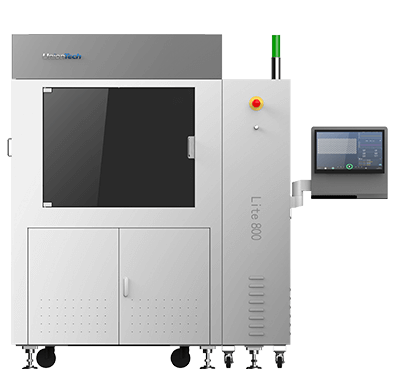Functional verification requires prototypes that closely mimic final production parts. The specific SLA printing materials used directly determine how accurately a prototype performs under test conditions. For automotive engineers, selecting the right resin is critical. UnionTech, as one of the industrial 3D printer manufacturers, provides a range of advanced materials designed to meet the rigorous demands of automotive testing phases.
Achieving High Strength and Thermal Resistance
For components under load or heat, material durability is non-negotiable. Resins like Ultra RC70 are formulated to offer high strength. These properties allow prototypes to endure mechanical stress testing and function in engine bays or other high-temperature environments without deforming. This capability gives development teams confidence in the prototype’s performance data, a key consideration for industrial 3D printer manufacturers when developing their material portfolios.
Simulating Rigid Production Plastics
Many automotive interiors and housings are made from rigid plastics. SLA printing materials such as EvoLVe 128 enable accurate assembly checks, ensuring that parts fit together properly and that snap-fits and brackets function as intended. Using the right material helps prevent costly design flaws from advancing to the manufacturing stage.
Delivering Precision for Complex Components
Some verifications demand high dimensional accuracy. For intricate ducts, sensor housings, or fluidic system models, a material like Ortho Premier allows for faithful printing of complex geometries, supporting precise functional testing in critical subsystems. The availability of such specialized SLA printing materials broadens the range of components that can be reliably prototyped.
The selection of advanced resins is fundamental to effective functional verification in the automotive industry. By offering materials that deliver strength, rigidity, and precision, UnionTech supports a more efficient and reliable product development cycle. Their ongoing work as industrial 3D printer manufacturers focuses on continuing to enhance these material properties, enabling engineers to validate designs with greater accuracy and build better vehicles.
